Related Research Articles

Joseph Harry Fowler Connick Jr. is an American singer, pianist, composer, actor, and former television host. As of 2019, he has sold over 30 million records worldwide. Connick is ranked among the top 60 best-selling male artists in the United States by the Recording Industry Association of America, with 16 million in certified sales. He has had seven top 20 US albums, and ten number-one US jazz albums, earning more number-one albums than any other artist in U.S. jazz chart history as of 2009.
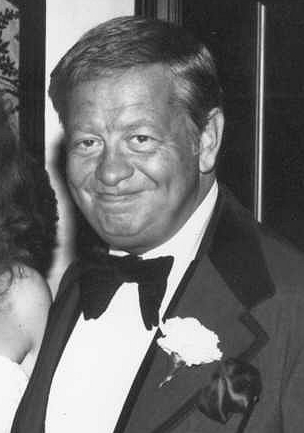
Melvin Howard Tormé, nicknamed "The Velvet Fog", was an American musician, singer, composer, arranger, drummer, actor, and author. He composed the music for "The Christmas Song" and co-wrote the lyrics with Bob Wells. Tormé won two Grammy Awards and was nominated a total of 14 times.
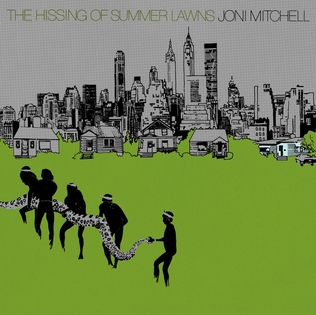
The Hissing of Summer Lawns is the seventh studio album by Joni Mitchell. It was released in November 1975 on Asylum Records. The album continues the jazz-influenced sound of Mitchell's previous album Court and Spark while featuring more unconventional and experimental material than its predecessor. Additionally, the album saw Mitchell experiment with sampling and synthesizers such as the Moog and ARP. Contributors to the album include jazz-rock groups the L.A. Express and the Jazz Crusaders alongside backing appearances by James Taylor, David Crosby, and Graham Nash.

Helen Forrest was an American singer of traditional pop and swing music. She served as the "girl singer" for three of the most popular big bands of the Swing Era, thereby earning a reputation as "the voice of the name bands."
"Tenderly" is a popular song published in 1946 with music by Walter Gross and lyrics by Jack Lawrence. Written in the key of E♭ as a waltz in 3
4 time, it has since been performed in 4
4 and has become a popular jazz standard. Notable versions have been recorded by singers, such as Sarah Vaughan, Billie Holiday, and Nat King Cole, and pianists, such as Art Tatum, Bill Evans and Peruchín.

Ella Fitzgerald Sings Sweet Songs for Swingers is a 1959 album by the American jazz singer Ella Fitzgerald, recorded with a studio Orchestra arranged and conducted by Frank DeVol.
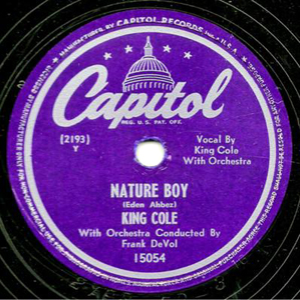
"Nature Boy" is a song first recorded by American jazz singer Nat King Cole. It was released on March 29, 1948, as a single by Capitol Records, and later appeared on the album, The Nat King Cole Story. It was written by eden ahbez as a tribute to Bill Pester, who practiced the Naturmensch and Lebensreform philosophies adopted by ahbez. The lyrics of the song relate to a 1940s Los Angeles–based group called "Nature Boys", a subculture of proto-hippies of which ahbez was a member.
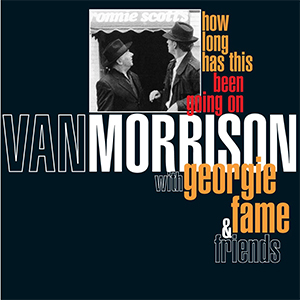
How Long Has This Been Going On is the twenty-fourth studio album by Northern Irish singer-songwriter Van Morrison, "with Georgie Fame and Friends", released in December 1995 in the UK. It charted at No. 1 on Top Jazz Albums.
"It Might as Well Be Spring" is a song from the 1945 film State Fair. which features the only original film score by the songwriting team of Richard Rodgers and Oscar Hammerstein II. "It Might as Well Be Spring" won the Academy Award for Best Original Song for that year.

Karrin Allyson is an American jazz vocalist. She has been nominated for five Grammy Awards and has received positive reviews from several prominent sources, including the New York Times, which has called her a "singer with a feline touch and impeccable intonation."
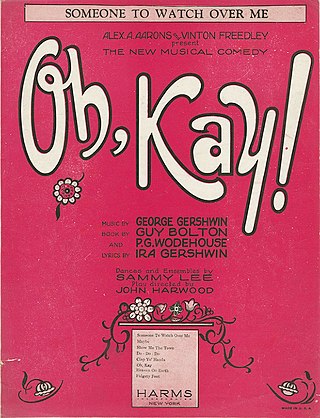
"Someone to Watch Over Me" is a 1926 song composed by George Gershwin with lyrics by Ira Gershwin, assisted by Howard Dietz who penned the title. It was written for the musical Oh, Kay! (1926), with the part originally sung on Broadway by English actress Gertrude Lawrence while holding a rag doll in a sentimental solo scene. The musical ran for more than 200 performances in New York and then saw equivalent acclaim in London in 1927, all with the song as its centerpiece. Lawrence released the song as a medium-tempo single which rose to #2 on the charts in 1927.

"River Man" is the second listed song from Nick Drake's 1969 album Five Leaves Left. According to Drake's manager, Joe Boyd, Drake thought of the song as the centrepiece of the album. In 2004 the song was remastered and released as a 7" vinyl and as enhanced CD single including a video to the song by Tim Pope.
"Autumn in New York" is a jazz standard and popular song composed by Vernon Duke in Westport, Connecticut in the summer of 1934. It was written without a commission or for a specific show, but Duke offered it to producer Murray Anderson for his Broadway musical Thumbs Up! The play opened on December 27, 1934, where the song was performed by singer J. Harold Murray.
"You Stepped Out of a Dream" is a popular song with music written by Nacio Herb Brown and lyrics by Gus Kahn that was published in 1940. The song has become a pop and jazz standard, with many recorded versions.

Deborah Ann Harry is an American singer, songwriter and actress, best known as the lead vocalist of the band Blondie. Four of her songs with the band reached No. 1 on the US charts between 1979 and 1981.
"Stella by Starlight" is a popular song by Victor Young that was drawn from thematic material composed for the main title and soundtrack of the 1944 Paramount Pictures film The Uninvited. Appearing in the film's underscore as well as in source music as an instrumental theme song without lyrics, it was turned over to Ned Washington, who wrote the lyrics for it in 1946. The title had to be incorporated into the lyrics, which resulted in its unusual placement: the phrase appears about three-quarters of the way through the song, rather than at the beginning or the end.

"I Cover the Waterfront" is a 1933 popular song and jazz standard composed by Johnny Green with lyrics by Edward Heyman. The song was inspired by Max Miller's 1932 best-selling novel, I Cover the Waterfront.

Misses is a 1996 compilation album by Canadian singer-songwriter Joni Mitchell. The selections, chosen by Mitchell herself, concentrate on her lesser known, more experimental work, including jazz influenced recordings from the late 1970s and electronic music from the 1980s. Mitchell also designed the album cover, which features her bending down in front of the camera. The album is a companion to Hits, issued on the same day. Mitchell agreed to a request from her record company to release a greatest hits album on the condition that she also be allowed to release Misses. There were also plans to release a Misses 2 but were rejected by the label when suggested by Mitchell.
"Come Sunday" is a piece by Duke Ellington, which became a jazz standard. It was written as a part of the first movement of a suite entitled Black, Brown and Beige. Ellington was engaged for a performance at Carnegie Hall on January 23, 1943, for which he wrote the entire composition. In 1958 he revised the suite and recorded it in its entirety for that year's album titled after the suite. "Come Sunday" was originally a centerpiece for alto saxophone player Johnny Hodges; the 1958 album, which contained a vocal version of the piece with new lyrics by Ellington featuring gospel singer Mahalia Jackson, greatly increased its popularity.
References
- ↑ "Centerpiece". Jazzstandards.com. Retrieved 13 December 2012.